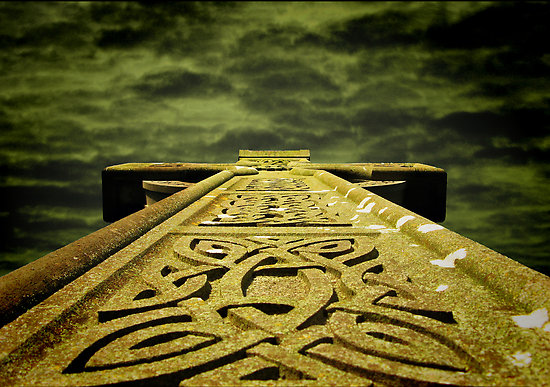Many people might make the mistake of thinking that someone who isolates themselves from community or from other people is a "peaceful" person. They keep themselves to themselves. They keep their head down. They avoid risk. They don’t offend people or get into relational conflict because they isolate themselves to avoid all of this stickiness. Is that what it means to be a "peaceful" Christian or a "peacemaker" as a Disciple of Christ?
Proverbs 18:1-2
The one who lives alone is self-indulgent,
showing contempt for all who have sound judgement.
A fool takes no pleasure in understanding,
but only in expressing personal opinion.
As Proverbs and a host of other teachings in Holy Scripture make clear: avoiding the difficulty of community often goes hand-in-hand with a selfish, opinionated, and unhealthy individualism. This person isolates themself so that opinions can stay intact and lifestyles and family cultural values never have to change; according to Proverbs this reveals some kind of self-indulgence and self-centeredness. One can't be a peacemaker as a Disciple of Christ, when our lives all about "me and my own". And yet, this is how many Christians choose to live. When problems arise, Christian Community, no matter how healthy (yet imperfect), is easily discarded with little consequence to everyday living.
This Sunday we will look at what it means to be a peacemaker, including what Jesus and Holy Scripture teach about it. As usual, Jesus says something very dangerous (and if a clergy person is smart, they will wisely navigate this minefield). However, in the time-period he said it in, it would have been scandalous! Women couldn’t get employment, families could be thrown out of synagogue, workers could lose their business connections and their only source of income! Family was the horizontal, everyday stability of first century life. And yet, Jesus says this:
Matt 10:34-39
34 “Do not think that I have come to bring peace to the earth; I have not come to bring peace, but a sword.
35 For I have come to set a man against his father, and a daughter against her mother, and a daughter-in- law against her mother-in-law;
37 Whoever loves father or mother more than me is not worthy of me; and whoever loves son or daughter more than me is not worthy of me; 38 and whoever does not take up the cross and follow me is not worthy of me. 39 Those who find their life will lose it, and those who lose their life for my sake will find it.
What!!??
To paraphrase Jesus and the Apostles: “the truth doesn’t change due to our ability or inability to stomach it.” The true peacemaker does NOT put the needs of himself/herself above certain things that Christ calls us to, no matter how difficult it is to do in the context of our inherited or developed views about marriage and family life. The only way to truly love another person, including our closest blood relations, is through the eyes and teachings of Jesus.
However, this does not mean that we turn our brains off and go throwing ourselves into undiscerned church busyness or undiscerned spiritual decision making. Sadly, there are many churches that will use and burn people out if they are allowed to do so. The “secret to the successful spiritual life” is constantly being sold by a rotating group of self-proclaimed experts. What we are called to is a sacrificial use of our spiritual gifts for the church and the world, but this does not negate our responsibilities as good stewards of our lives and the families we love. The point is, we are to make these often difficult and complicated decisions through the lenses of Jesus Christ and his callings on us with the aid of other, wise believers among us. If we choose not to, we risk becoming slaves to our own individualism, insecurities, and selfishness.
Lent is a time to look at why we are so emotionally committed to certain things in our lives, and to ask ourselves why we see these things as immovable entities. It is a time to find community with others facing the same complex applications in a society around us that seems so self-assured about what life is really about. If we want to bring shalom to the world around us, the starting place is not found in positive good activity alone. The starting place is to open our hearts to the life-changing work of the Spirit through Word and Sacrament; by living out this peace, this "wholeness" that we are experiencing through God's transforming work in our lives.
Let us continue to journey together in the Season of Lent.


